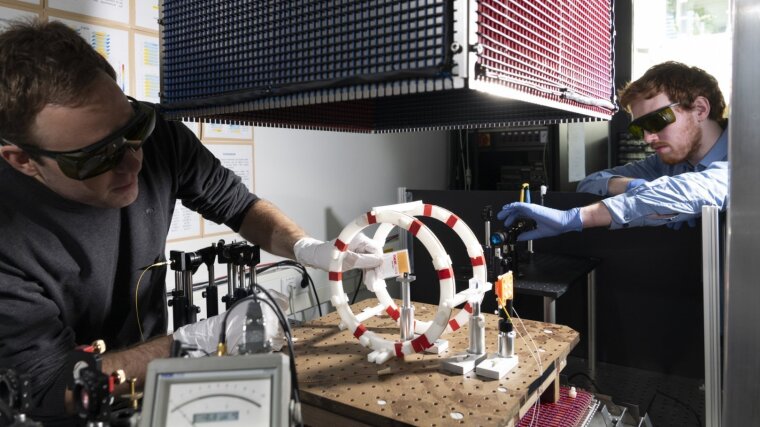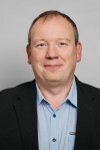
Dr. Ronny STOLZ
Image: Leibniz-IPHTProf. Dr. Ronny STOLZ
Email: ronny.stolz@leibniz-ipht.de
Phone: +49 3641-206-119
Dr. Ronny Stolz is the head of the Quantum Systems department at the Leibniz Institute of Photonic Technology (Leibniz IPHT). He is board member of the FLUXONICS foundry and the Applied Superconductivity Educational Foundation. He was granted with a number and prizes of awards such as in 2017 the ESAS Award for Excellence. Currently, he coordinates various R&D projects in the research field of Quantum Technology and according key enabling technology.
The department Quantum Systems addresses the topics quantum computing and simulation, quantum sensing and metrology as well as quantum communication on the atomic and solid-state superconducting quantum technology platforms. The research is focused on exploiting quantum effects for applications by investigating quantum dynamics between single objects, in large systems as well as in their interaction with electromagnetic radiation. In this context quantum engineering, which means ensuring quantum operation in complex devices, is one important topic and is used to enable operation at utmost performance as well as new functionalities in applications of socially relevant fields such as health technology and medicine, life and environmental sciences, geoscience, as well as security. Together with the Competence Center for Micro- and Nanotechnology at Leibniz-IPHT, the group holds the whole research and development chain from circuit design and simulation, thin-film fabrication technology over integration technology up to complete instruments and according software tools are covered.
Research Areas
Research targets of Ronny Stolz and his group lay in the application-oriented implementation of quantum systems. The research topics include:
- Quantum dynamics in superconducting and atomic systems,
- Superconducting qubits and quantum computation,
- Quantum engineering, enabling technology, and integration technology,
- Fabrication technology for superconducting and atomic quantum systems and devices,
- Superconducting sensors and applications,
- Radiation detectors at different wavelengths from XUV to microwave aiming for single photon resolution,
- Photonic magnetometers and their applications.
Teaching Fields
Dr. Ronny Stolz teaches students in the courses M.Sc. Physics and M.Sc. Photonics, B.Sc. and M.Sc. Geophysics. He offers lectures in:
- Superconductivity,
- Experimental Quantum Technology
- Geophysical mineral exploration methods
- Magnetic, electromagnetic and gravimetric methods in Geophysics,
- Matlab™ für Geoscientists
Research Methods
The laboratories of the department at Leibniz IPHT hosts world-unique facilities for example:
- Shared clean room area with capabilities for thin film technology in the context of superconducting quantum circuits and a number of integration technology such as wafer and wire bonding,
- Characterization labs with tools for ultralow noise measurement over a wide frequency range from DC to 26 GHz, microwave and optical testing equipment,
- Cryogenic setups for measurement at different temperatures down to 10 mK with electrical and optical access,
- Optical setups for atomic spectroscopy of alkali vapors,
- Specialized ultralow-noise setups such as electromagnetically or magnetically shielded rooms,
- Calibration facilities for magnetic field and gradients.
